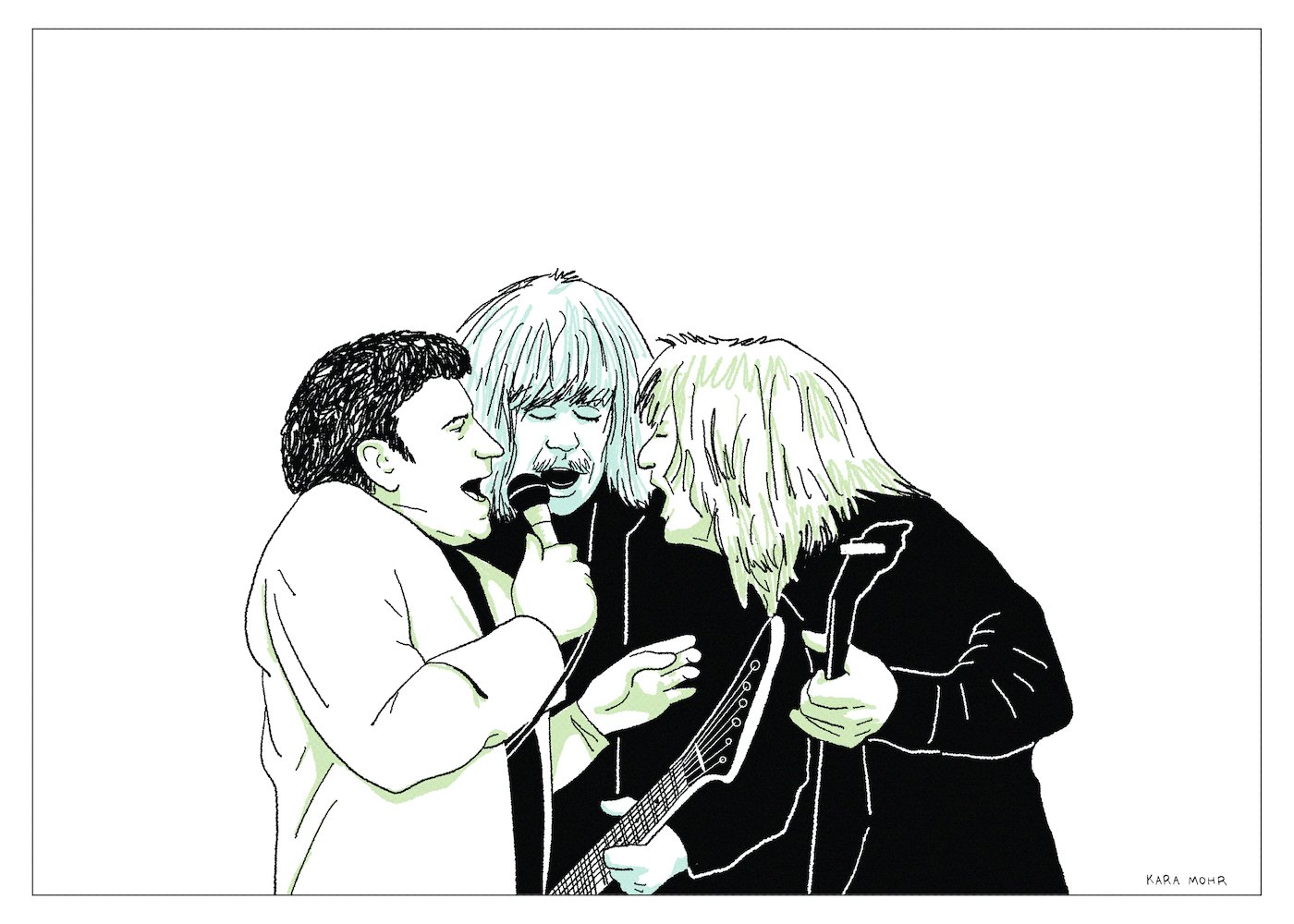
Styx “Brave New World”
Like Queen, with whom they’ve often been compared, Styx has always been the kind of band that swings for the fences. Most of the time they whiff — but in a charming “love the effort” sort of way. When they connected, however, as they did roughly one time per album between 1973 and 1982, they hit it out of the park. Way out of the park. During that run, DeYoung, Shaw, Young and the Panozzo brothers scored a half dozen top ten hits and five consecutive platinum-selling albums. And yet it always seemed to me that the band was a mistake — that we already had Queen and Journey. That DeYoung should be wowing audiences on Broadway (which he eventually did) and that Shaw should be fronting a Hair Metal band (which he also eventually did). By the end of the Nineties, seventeen years removed from the dystopian, sci-fi hit that broke the bank and the band, Styx were still swinging, but no longer connecting.
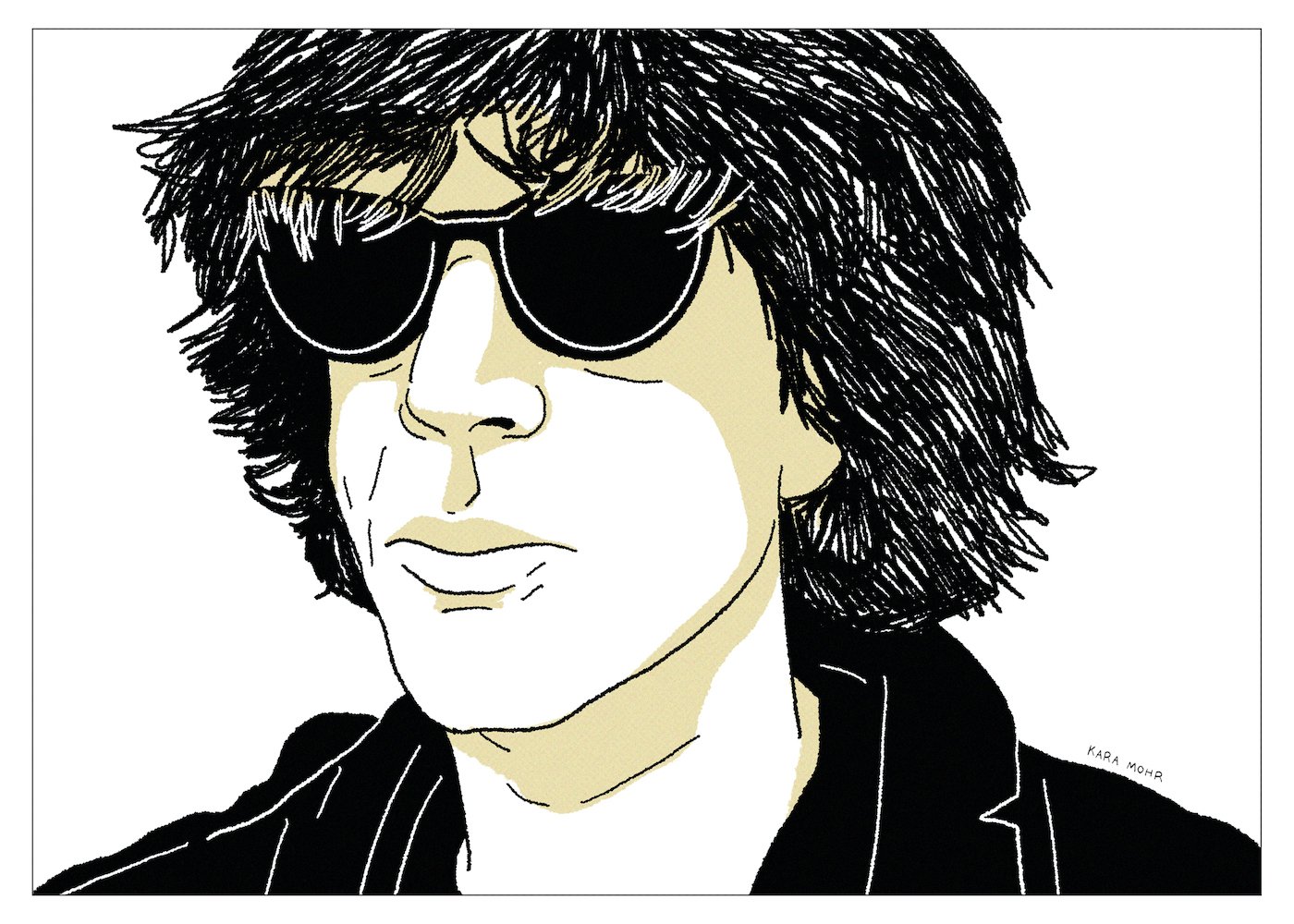
Dim Stars “Dim Stars”
Though it was released in 1991, “Dim Stars” sounds like New York City in 1988 — when Jon Spencer was fronting Pussy Galore and before Sonic Youth got a major label deal and when Avenue A was still sketchy and when everything stunk of imminent recession. Like all of those other things, you could call “Dim Stars” loose and offhanded, or you could call it sloppy. You could call it artful or avant garde, or you could say that it sounds like shit. But in fact, it really sounds like four different things. One, like Sonic Youth with Richard Hell splitting the difference between Thurston and Kim. Two, like a poorly made sequel to “Destiny Street.” Three, like an overqualified Scuzz Rock band that had not yet found its groove. And, finally, like a post-structuralist hipster cover band.
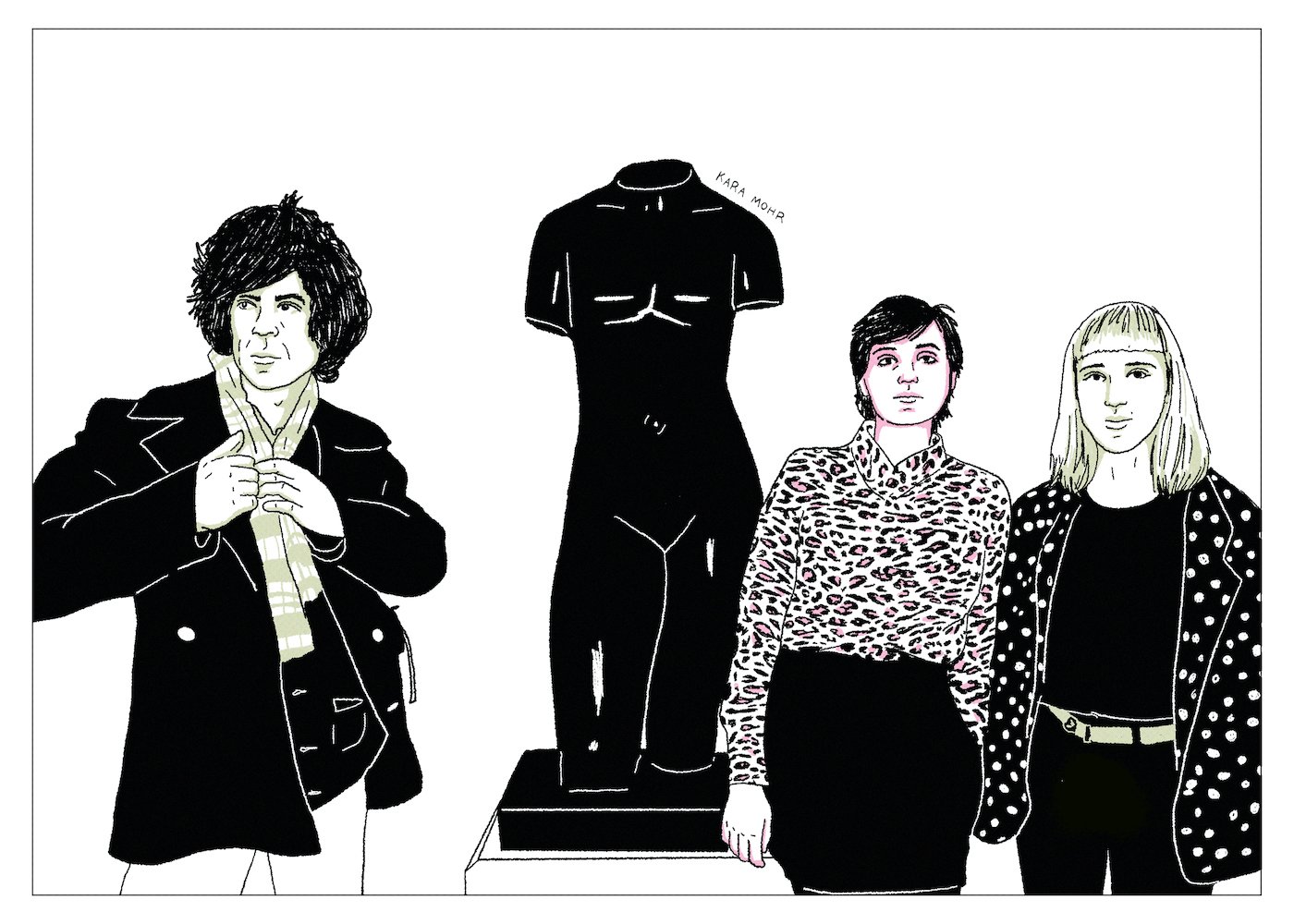
Chain and The Gang “In Cool Blood”
Like Nation of Ulysses before them, The Make-Up were more legendary than popular. And so, just five years after they first appeared, the most stylish, most ideological band on the planet was dissolved. In the Aughts, Ian Svenonius (along with Michelle Mae and Neil Hagerty) formed Weird War, but because socialism might be bad for business, the singer spent most of that Aughts moonlighting as a subject slash contributor for Index Magazine — and anyone else who wanted his ideas and his hair for their pages. By 2009, he was more an essayist, a great interview, a great photoshoot, and a hipster cad than he was a rock and roller. He was to Vice what Fran Lebowitz was to Vanity Fair. Until one day — when he’d either run out of ideas or when he had too many out of them — Svenonius started another new band. Chain and the Gang started as a lower stakes, rotating cast of friends and acolytes, sponsored by Calvin Johnson. By then, fans (and critics) were familiar with Svenonius’ Post-Structuralist, Marxist provocateur shtick. What they were less familiar with was his winking, hip-shaking good times.
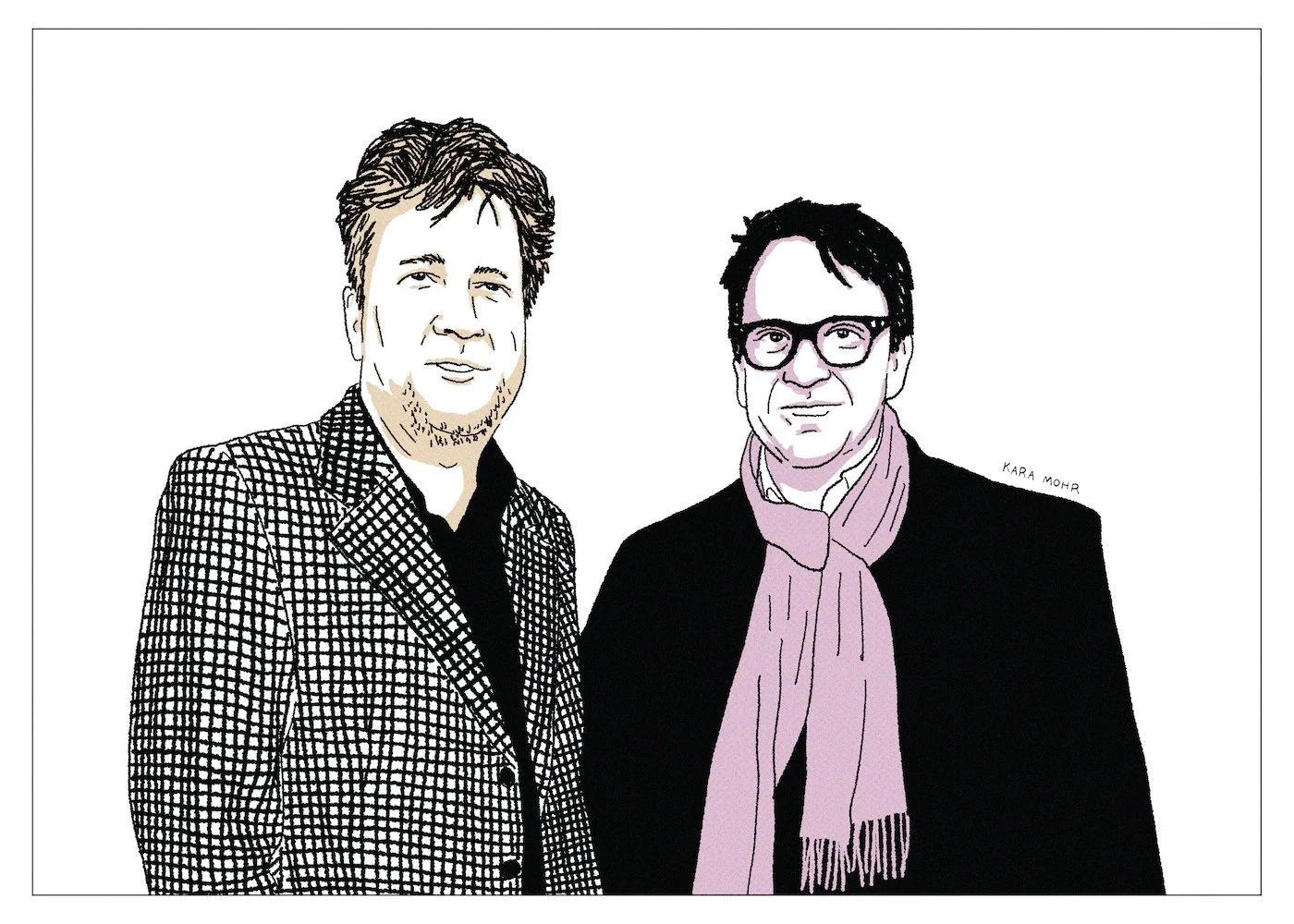
Squeeze “Cradle to the Grave”
Though early on they were compared to Lennon and McCartney, Glenn Tilbrook and Chris Difford were much closer to Elton John and Bernie Taupin. Tilbrook was a master tunesmith and Difford was an equally gifted wordsmith. For the most part, however, (and unlike Lennon/McCartney) they worked separately, fitting and refitting their own parts to the others’ material. Tilbrook, the more gregarious and intuitive one — he leaned towards the Beatles. Difford, more contained and cerebra, leaned towards Post-Punk. One man was blonde. The other brunette. They were childhood classmates, but, from the outset, and in spite of their shared interests, they were also a study in contrasts. During Squeeze’s first break-up, the two men actually made an album together, under their own names. After the second divorce, however, things got ugly. Jools Holland was gone, the hits dried up and Difford bottomed out. From the outside, it seemed certain that Squeeze was done. From the inside, it appeared even worse.
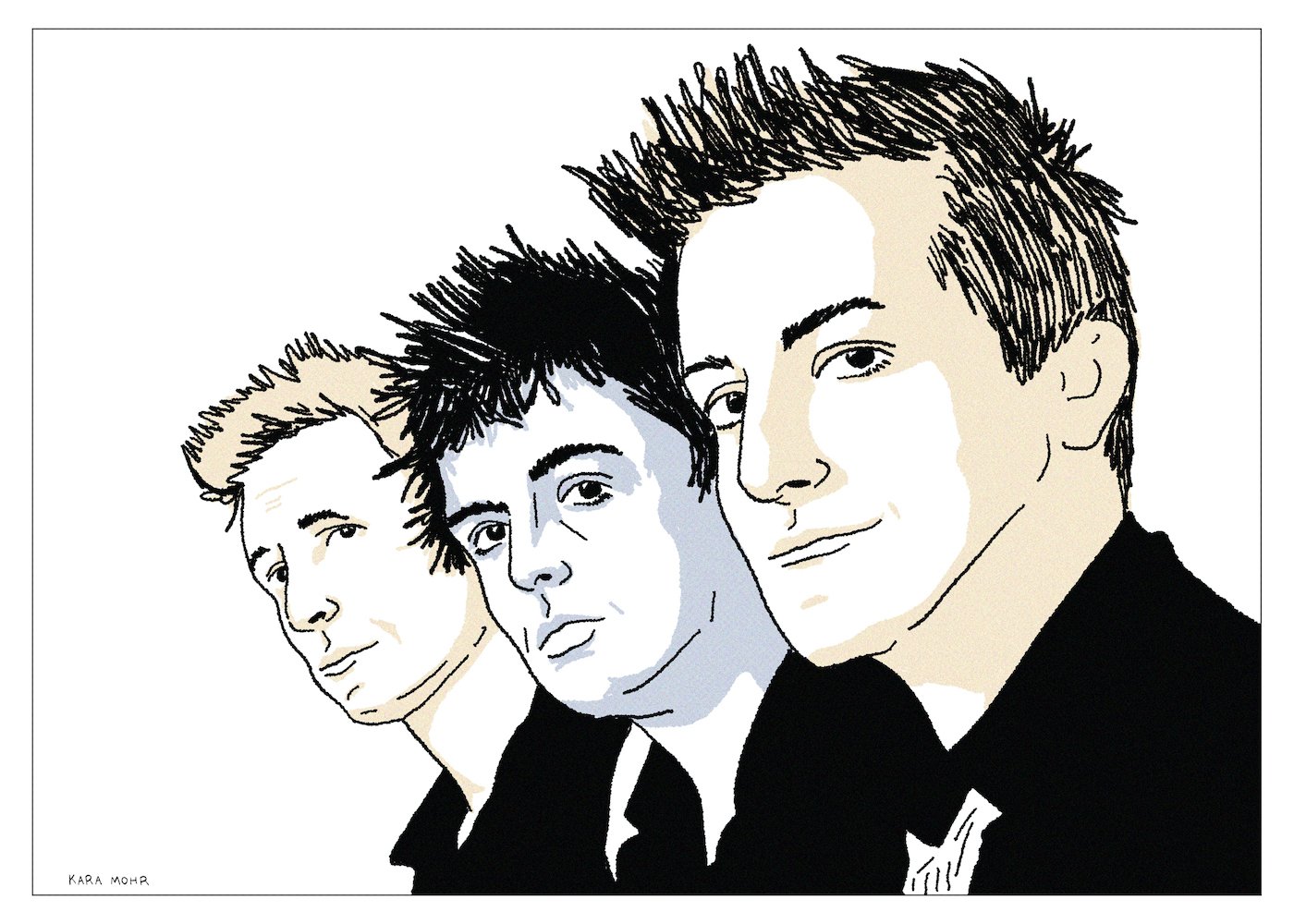
Green Day “Revolution Radio”
Twenty-two years after they first broke out with “Longview,” twelve years after they were the biggest Rock band in the world, eleven years after they inadvertently bankrupted Lookout! Records and four years after Billy Joe melted down onstage, Green Day was, once again, a band with uncertain prospects. And yet, their twelfth studio album was not a sharp turn or a step back or a leap forward. “Revolution Radio” was more a shoring up of lost ground — more like downside protection. All three members of the band were well into their forties by the time of the record’s release, meaning that the snotty charms of their youth would not play the same. Self-loathing and fuck you's present much differently in middle-aged millionaires than they do in twenty year olds. And so, in the year that Donald Trump was elected President and at a time when album sales were usurped by track steams, Green Day was in the unenviable position of having to question both their form and their function.
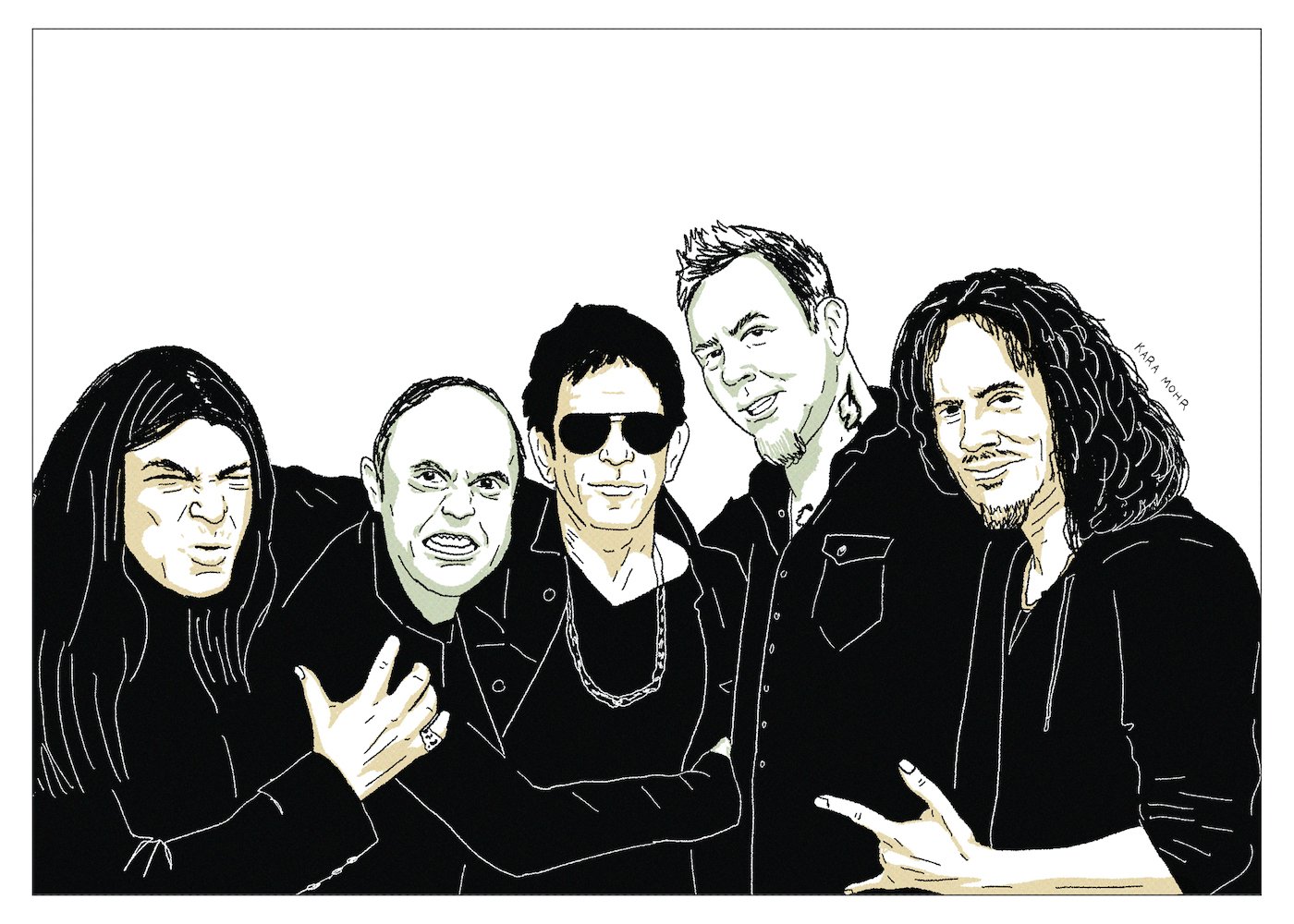
Lou Reed and Metallica “Lulu”
Given how few people have actually heard the album, and how few of those people are interested in anything beyond the stars involved, the volume of “Lulu studies” is staggering. But the divergence of the various theses is so bold as to suggest that either (a) people are listening to different albums or (b) nobody knows anything. There is, of course, overlap in the various perspectives — but less than I would have assumed. Many simply believe that “Lulu” is a historic failure — a bloated pretentious hour and a half of noise and nonsense. There are others who view it as an act of artistic bravery from two legendary artists, committed to a vision and unconcerned with failure. And, finally, there are those who believe that “Lulu” is misunderstood. Nowhere among the three points of view, however, can you find a faction who boldly proclaims: “Lulu is awesome.”
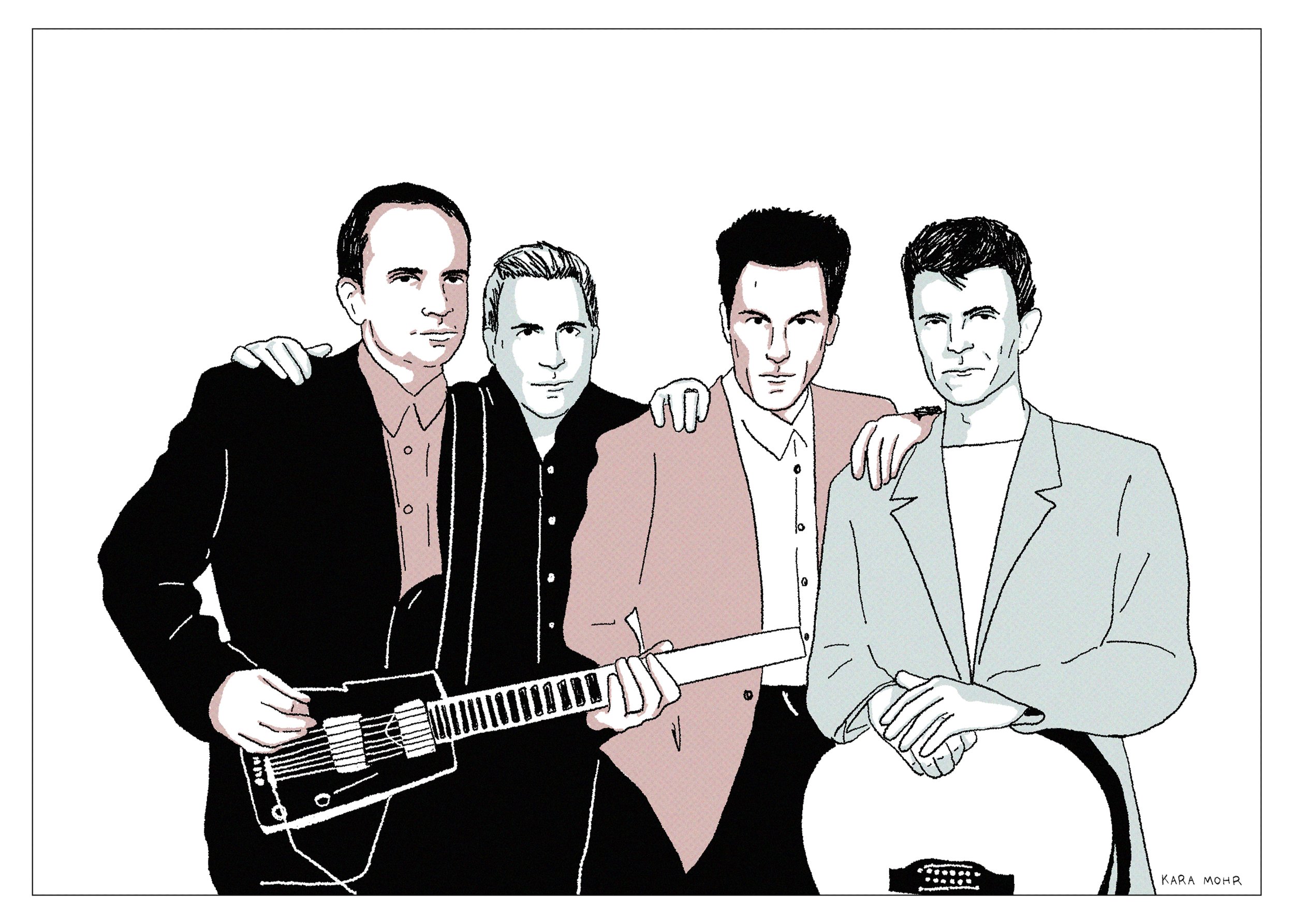
Tin Machine “Tin Machine II”
By the late Eighties, there were no fresh blood for David Bowie — the greatest vampire in Rock and Roll — to suck. The top Rock radio songs of 1988 included Henry Lee Summer’s “I Wish I Had a Girl” (what? who?), Bruce Hornsby and the Range’s “Valley Road” (rocks so light) and Tommy Conwell & The Young Rumblers’ “I’m Not Your Man” (not a typo, I checked). After two consecutive duds, Bowie was desperate for inspiration, but the pickings were slim. And so, he did what desperate people do. He found the nearest available guy and went all in. No research. No courtship. He just needed a guy with a beating heart, pumping blood and some capacity to make music. But mostly, he someone who could be a willing host to a brilliant parasite. Reeves Gabrels was that new host. And, in spite of his regal sounding name, he was truly just a guy — a guy from Staten Island, New York, who happened to be married to David Bowie’s tour publicist. One day, Gabrels was playing steel guitar in Rhode Island for a band called Rubber Rodeo. A year later, he was the cofounder of Tin Machine.
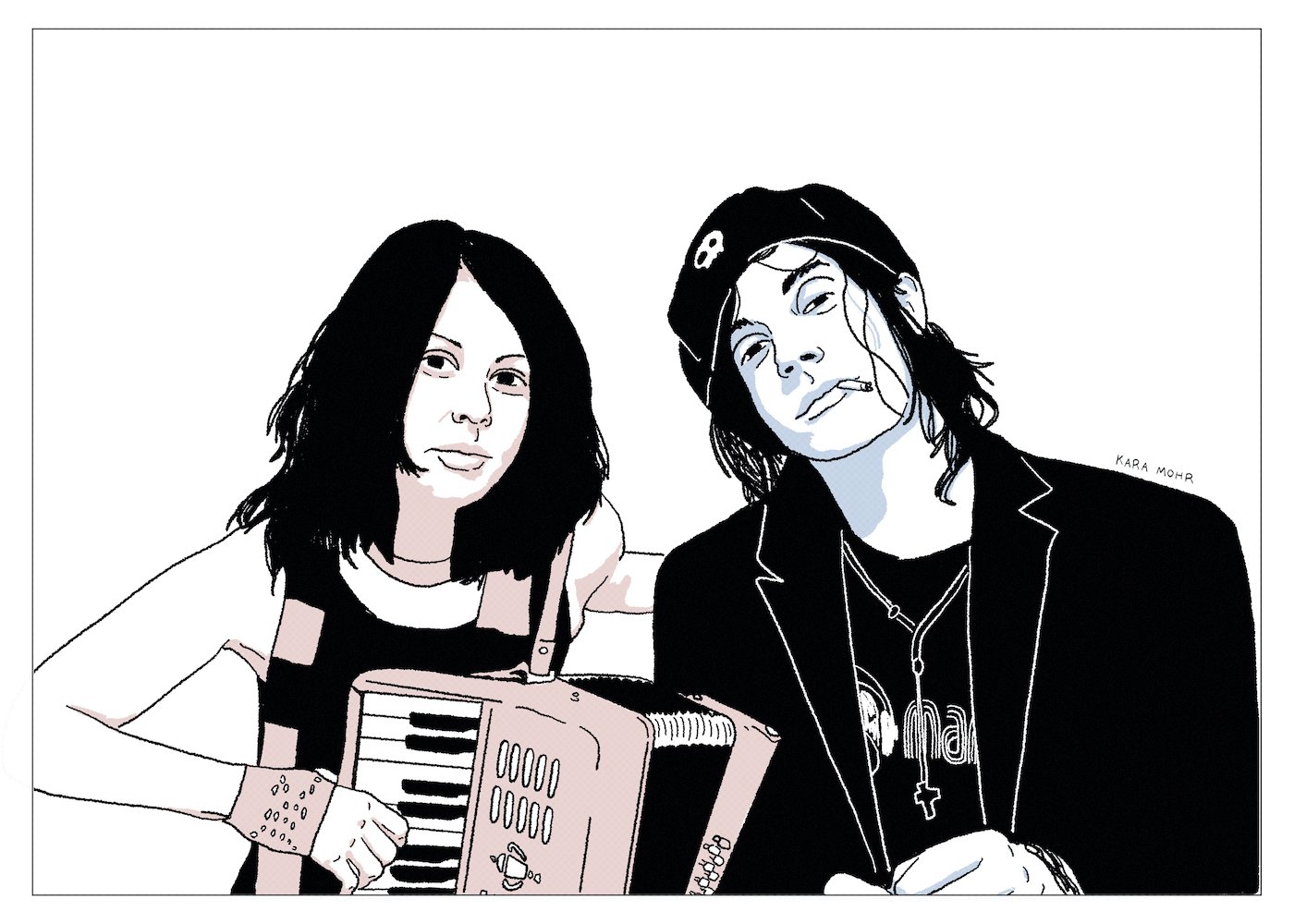
Marah “Marah Presents Mountain Minstrelsy of Pennsylvania”
The first wave of Dad Rock is canon — Dylan, The Band, Petty, The Boss. Occasionally, it veers into Indie or Alternative Rock (REM, The Replacements) or headier stuff (The Dead, Steely Dan). But, broadly speaking, it’s American Roots Rock for educated men who are older than thirty but younger than sixty, who are likely to drink craft beers and who desperately want their children to understand the glory of “Jungleland.” The second wave of Dad Rock is still a work in progress. In the early Aughts, bands like The Hold Steady and Band of Horses and Arcade Fire began to make their cases. Some of the neo-Dad Rockers were cut from The Boss’ cloth (Gaslight Anthem, The Constantines) and others were perhaps closer to Dylan (Bon Iver, Sufjan Stevens). But the ones who should have been kings — the ones who got it all started but then got lost in the plot — were Marah.
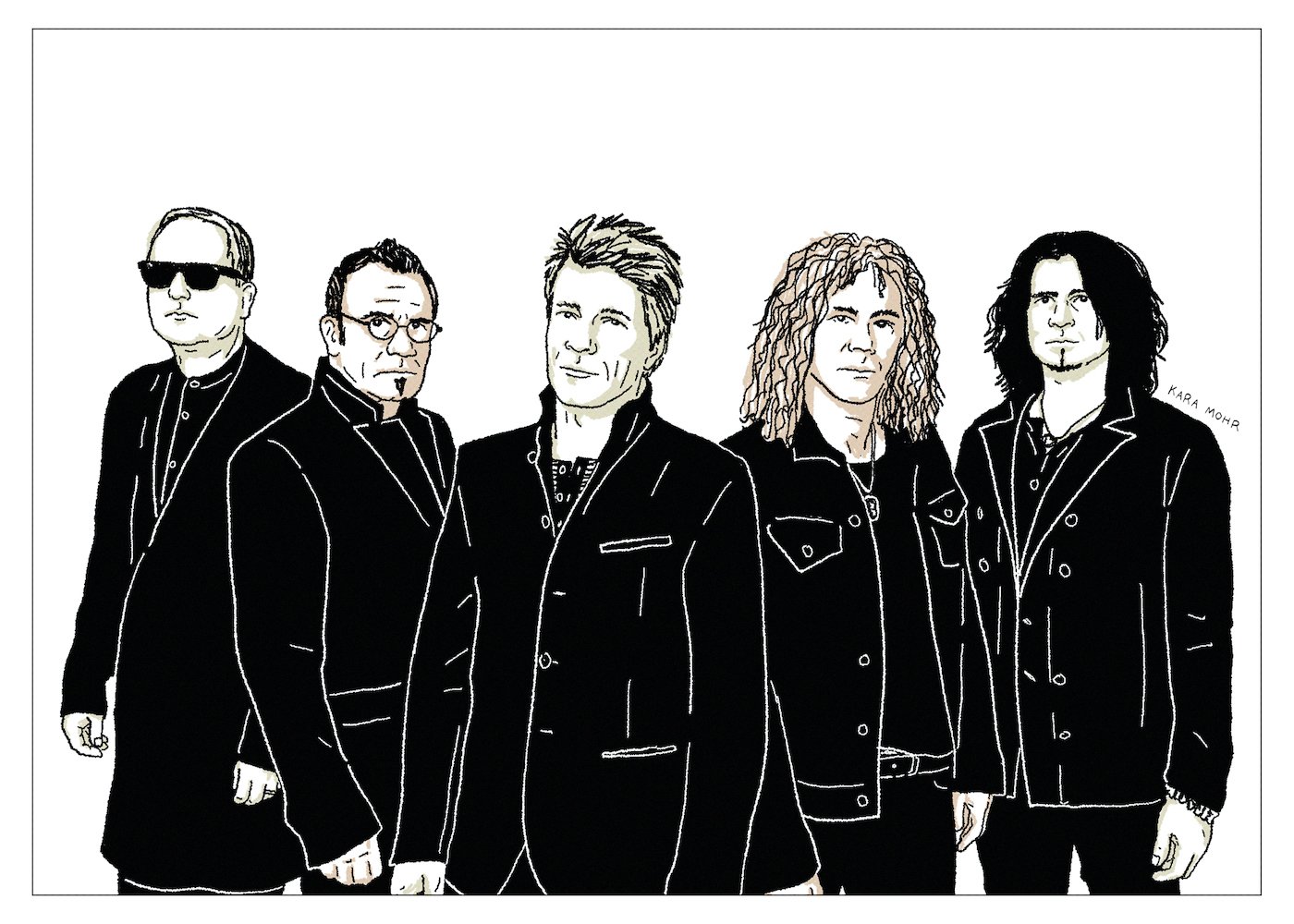
Bon Jovi “This House Is Not for Sale”
Though they were no longer America’s Biggest Rock Band, Bon Jovi could still sell (many) millions of albums. But it was clear to anyone who was paying attention that things had changed. Jon cut his hair and took up acting. Richie married Heather Locklear. Over the course of three decades, they’d traded in grit for nostalgia. Their fearlessness was subsumed by trite optimism. And though they’d sustained their spot on the charts, they’d regressed from something iconic to something more generic. By 2015, they had to confront the existential risk that all Arena Rock bands some day face: the challenge of being both universal and distinct. Many great bands had fallen into that chasm before: Journey, Foreigner and REO Speedwagon to name a few. But, not Bon Jovi. In just a few years, and without Richie Sambora, they went beyond arenas. Beyond namelessness and facelessness. They became the Bud Light of Rock and Roll — the highly consumable, mostly bland complement to Fox Sunday football.
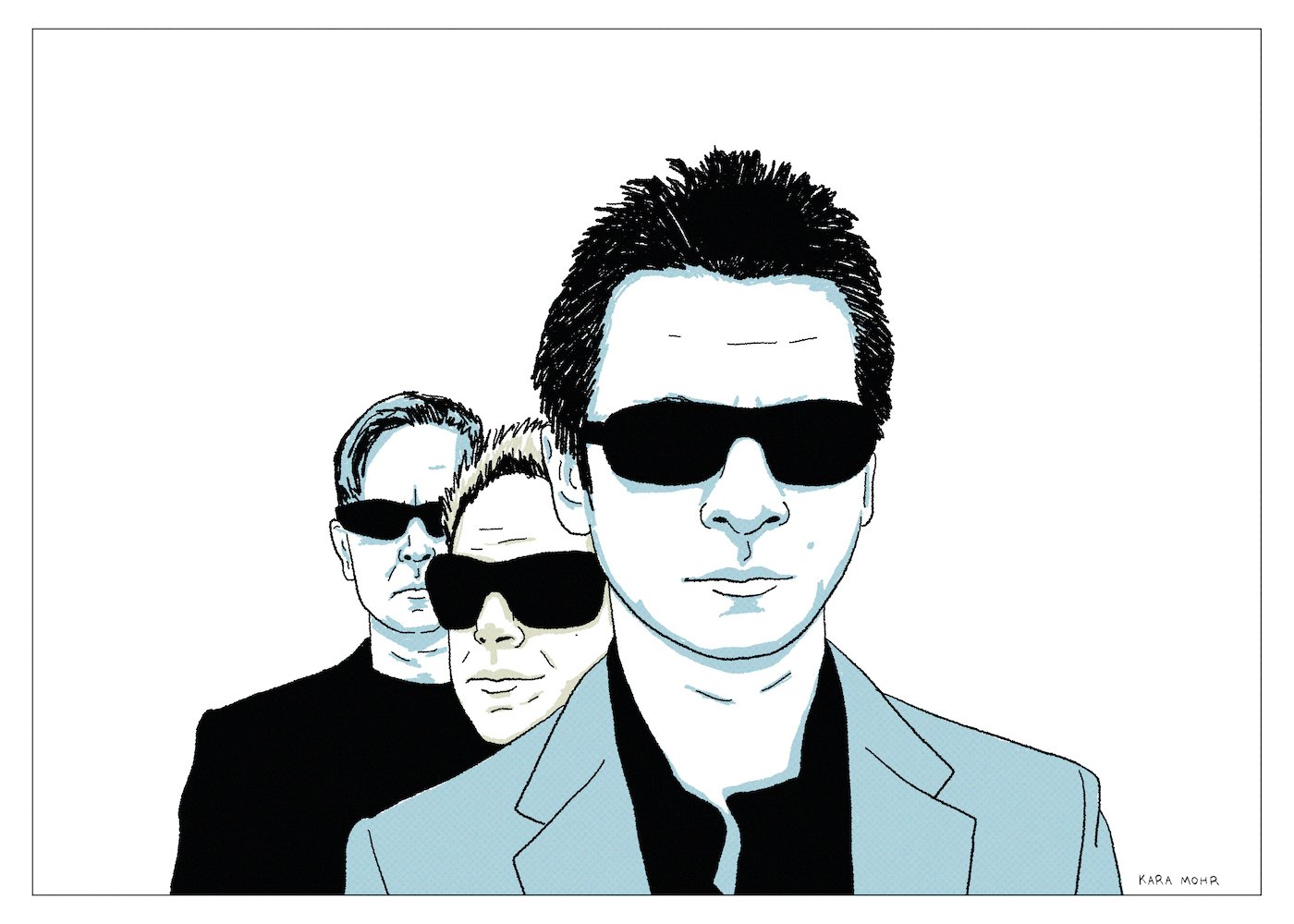
Depeche Mode “Playing the Angel”
By 1990, having graduated from new wave romantics to industrial futurists to “goth cowboy junkies,” Depeche Mode had inexplicably managed to conquer the world. And though they were churning — even rotting — on the inside, “Violator,” from that year, was inarguably their commercial and creative peak. It was also very nearly the death of the band. During the 90s, Gahan sunk deeper into heroin addiction, Gore was literally seized by alcoholism and Fletcher suffered crippling anxiety. The downward spiral continued until 2005, when Gahan, newly sober, and Gore, not sober and soon to be divorced, retreated with Fletcher to Gore’s home studio in Santa Barbara. The resulting album, “Playing the Angel,” was a deceleration and introversion following decades of the opposite. And while it was mostly a beloved album, it was not “peak Depeche Mode.” It’s a downing of the ante. It was also a minor miracle, recorded at the moment when the un-killable band suddenly seemed all too mortal.
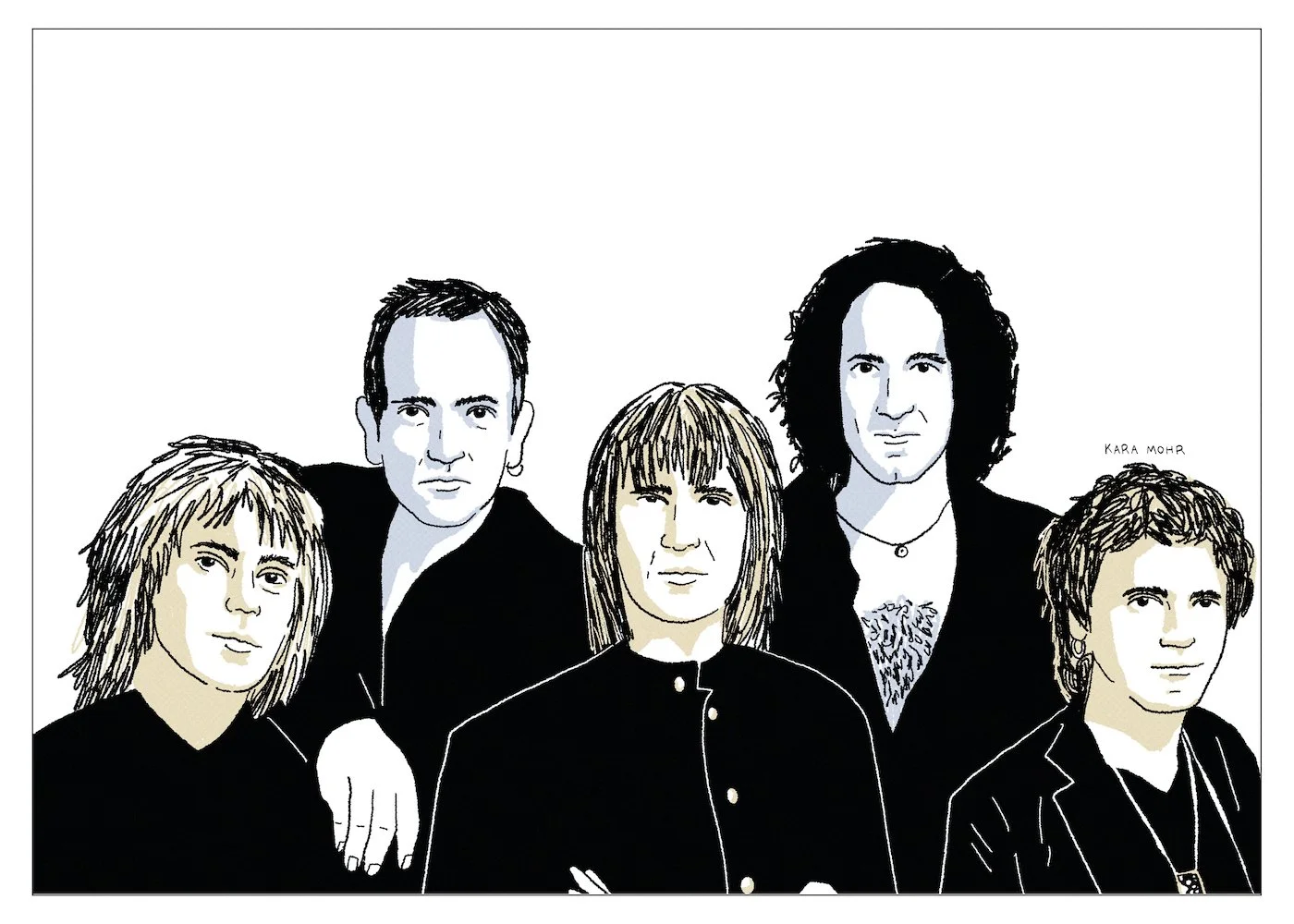
Def Leppard “X”
Def Leppard were once as American as apple pie. More than Bruce or Petty or Johnny Cougar, they were the soundtrack of the American Heartland. They were the grist for Rock radio, churning out pristine, semi-heavy, fully melodic singles, engineered by the future Mr. Shania Twain. With the arrival of Grunge and Alt, however, came the annihilation of Hair Metal. And though they did not precisely fit the genre, Def Leppard was a casualty of the 90s. On the brink of extinction, they tried everything to survive. They tried sounding like Stone Temple Pilots. They tried sounding like themselves. And then, finally, desperately, they tried the unthinkable. They hired wunderkinds Marti Frederiksen and Max Martin and made a bunch of tracks that resembled the third best songs from “American Idol,” if recorded by Bryan Adams for the Nordic market. On “X,” Def Leppard tried mightily to reclaim lost ground, but ultimately fell short of “popular” and landed awkwardly in the neighborhood of “pop.”

Cheap Trick “Cheap Trick”
The idea of a “return to form” is nothing new. Neil Young’s “Freedom” was his “return to form.” So was Clapton’s “Journeyman.” Dylan has probably “returned to form” half a dozen times in his career. The implication is the same: that some beloved, aging artist who had lost their way was finally making great music again -- music that confirmed their original brilliance. In 1997, ahead of their thirteenth studio album, writers and publicists were insisting that Cheap Trick’s latest was a return to form. Fans came out from the woodwork. Nirvana and Smashing Pumpkins and Weezer portended the event. Cheap Trick had found their way back. The band that Mike Damone and millions of Japanese teenagers once loved was coming back to get their due. But for a group whose success was so fast and so fleeting, and whose last hit was a hairy, ten year old power ballad, it was fair to wonder: what form were they returning to, exactly?
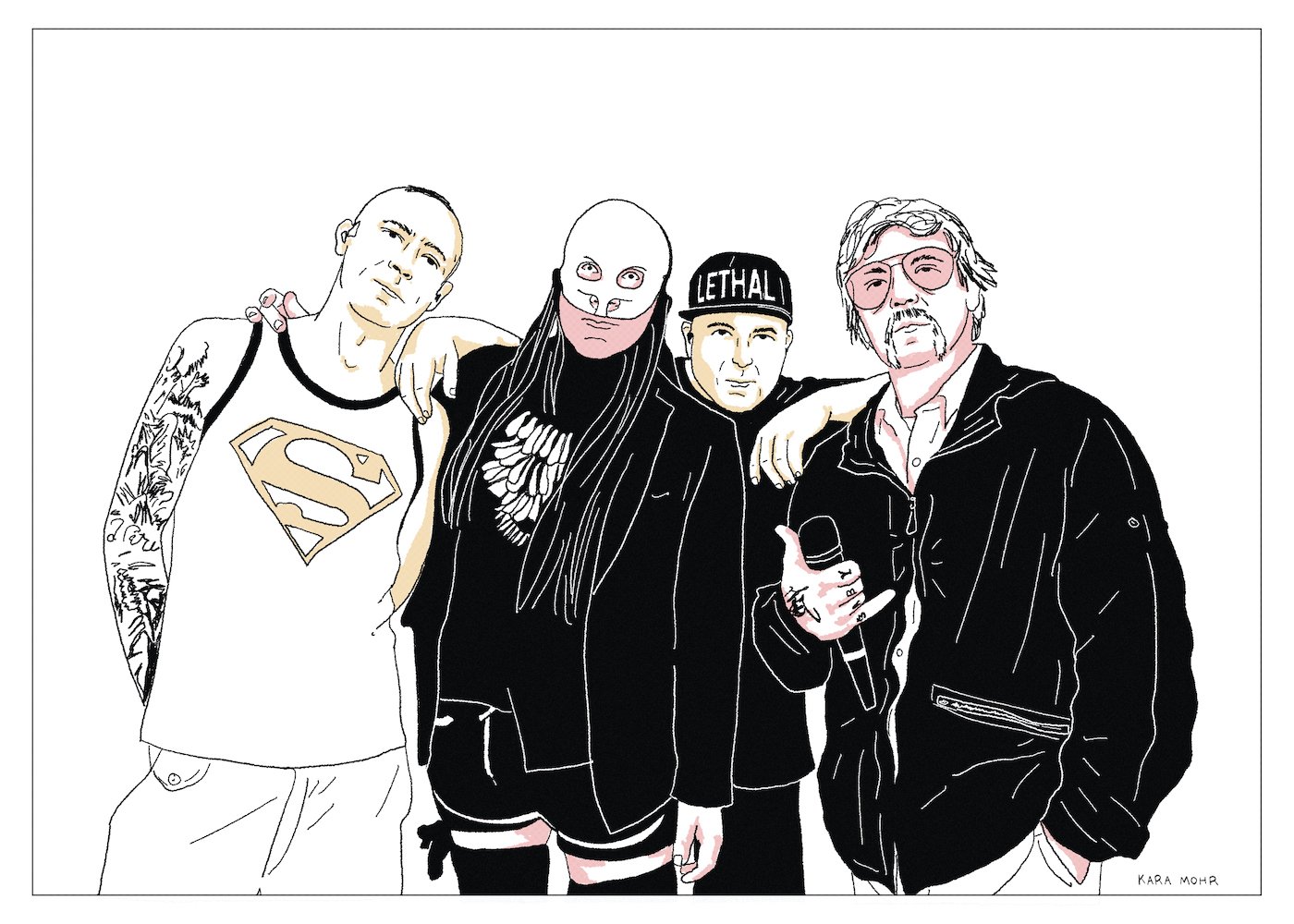
Limp Bizkit “Still Sucks”
There’s this rich, aging Floridian who’s prone to wearing red hats, saying horrible things about women, insisting that he’s a victim and flirting with Russia. Many Americans consider him to be a terrible, dangerous human. But to some, he remains unassailable -- almost godlike. His name, of course, is Fred Durst. The villainization of Durst is almost too easy. His name is basically synonymous with “douche.” And as popular as Limp Bizkit once was, they were more so reviled. To many, the band’s frontman has always been an under-talented, rage spewing bro. His litany of offenses is significant and the counter-argument is not terribly clear. Durst, however, has been consistent with his own defense: He is the lifelong victim of bullying and rejection. He’s horrified that his band’s music was co-opted by misogynists. He’s not the bad guy. He knows his band sucks. He’s in on the jokes. If anything, the joke is on us -- his critics. In fact, we are the bullies.

The Doobie Brothers “Brotherhood”
Today, they are the butt of a joke that started as an internet meme. They signify an amalgam of 1970s idealism, kitsch and grooviness alongside early 80s cool, coked up excess. All because of four albums they released between 1976 and 1980, and because of Michael McDonald’s proximity to Steely Dan, Christopher Cross and Kenny Loggins. Because of that, The Doobies are Twitter jokes and Spotify playlists more than they are “China Grove,” “Black Water,” “What A Fool Believes” and the bootlegging scandal from “What’s Happening!!” For nearly a decade, however, they were the American monoculture. Not The Eagles or Fleetwood Mac or M*A*S*H. The Doobie Brothers. They were the opposite of a punchline. The opposite of any one thing. They were everything. Then, one day, everything became too much and they were gone. By the time they came back, everything had changed. Everything, except The Doobie Brothers.
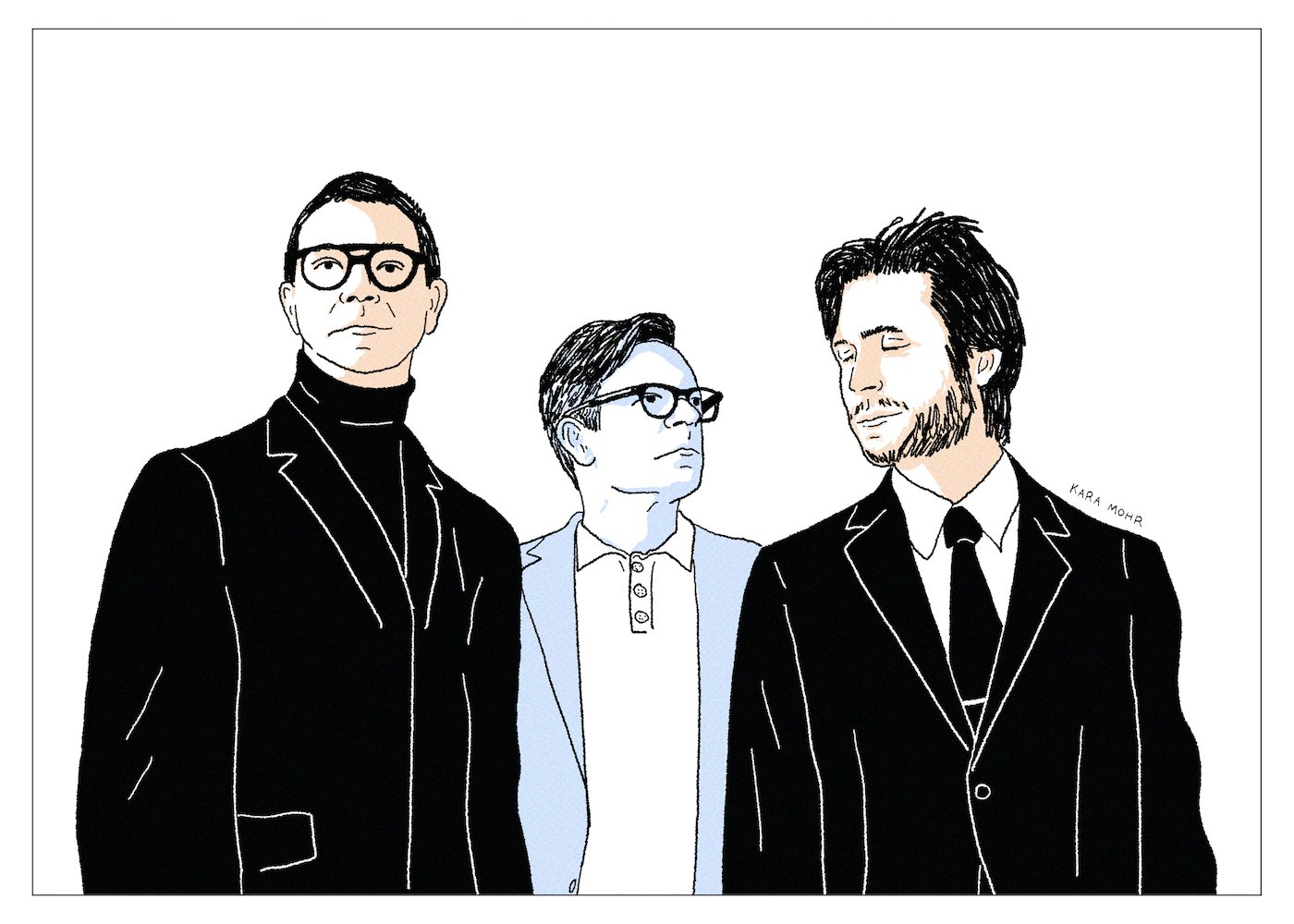
Interpol “The Other Side of Make-Believe”
Whereas most of those Williamsburg by way of Lower East Side bands of the early Aughts balanced post-collegiate pretense with drunken dude-ness, Interpol appeared to be all pretense. The suits. The black on black. The Factory Records of it all. Even before I heard a single note of their music, I was confused as to whether they were satire, or postmodern commentary, or totally earnest, or something I’d never encountered before. Eventually, though, I figured out that the Carlos and the Daniel and the Paul and the Sam I’d seen about town were identical to the ones who were on stage at Mercury Lounge. These were not actors. Those were not costumes. They were maybe not even uniforms. They were skins. And yet, back in 2002, every fiber in me was expecting the truth to eventually be revealed. The other black leather boot had to drop some day. No matter how great their debut album was. No matter how great their follow-up was. No matter how enduring the act, I was convinced that they’d trip up and be revealed as something fraudulent. Twenty years after “Turn on the Bright Lights,” though, I stopped waiting for the backlash.
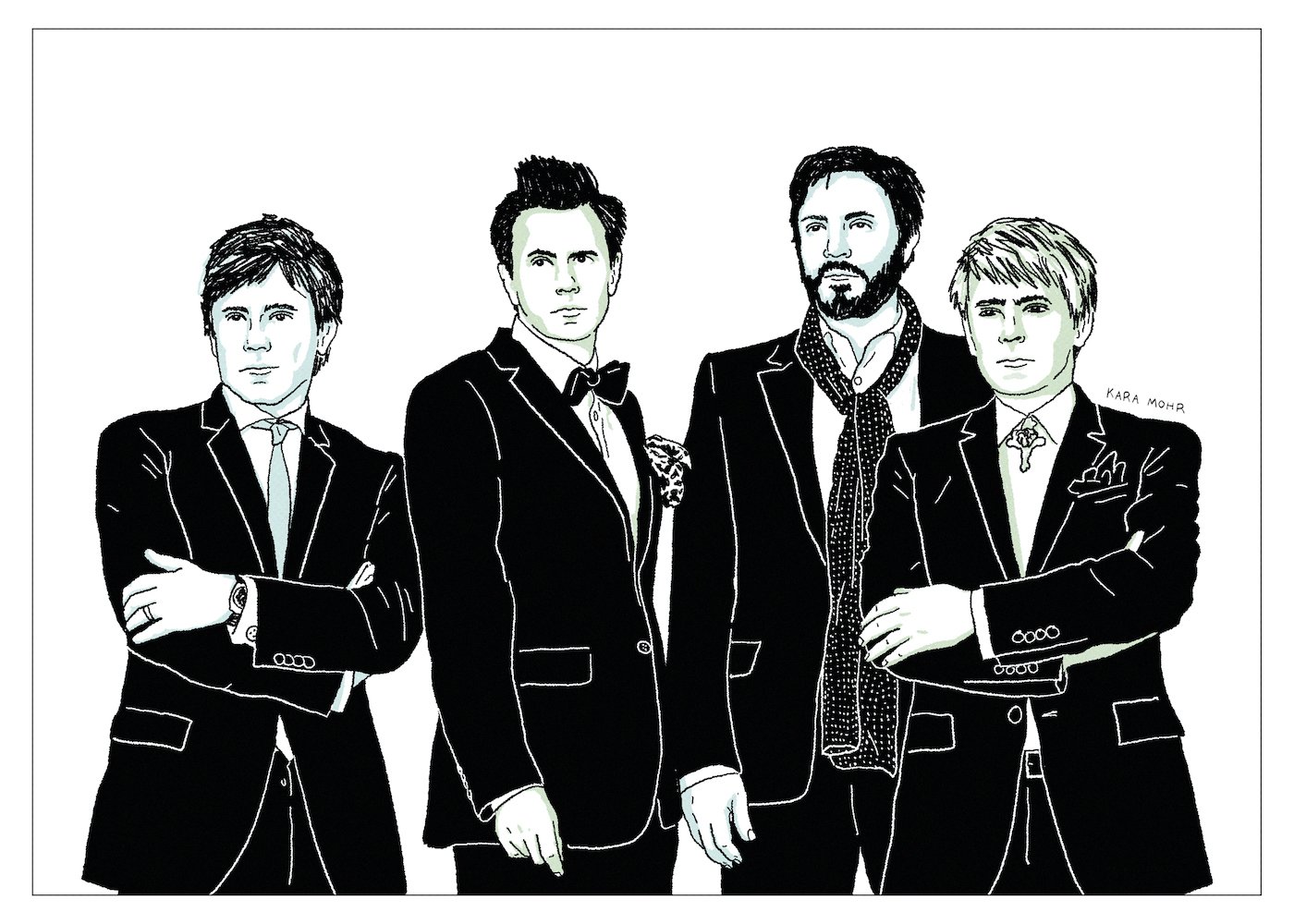
Duran Duran “All You Need Is Now”
By the time Duran Duran tired of their plight as Tiger Beat cover boys, it was too late. They would never be Chic meets Roxy Music, with a dash of The Sex Pistols. The corner of the world that they dreamed of had been claimed by New Order, The Cure and The Smiths. They were doomed to be Pop stars. And they could not tolerate it. After half a decade of fame, fortune, drink, drugs, and screaming girls, they splintered, and then buckled. And they’ve spent roughly the last forty years trying to put things back together — carefully toeing the line between looking back and looking forward. Their efforts included a forgettable covers album, a reunion of The Fab Five and a collaboration with Timbaland. But nothing worked. It increasingly seemed that Duran Duran would be remembered as one of the greatest Pop bands from the greatest moment in the history of Pop — and nothing more. Until, one day, Mark Ronson dared to wonder: “What if that moment returned?” Or rather, “What if we could recreate it? What if, thirty years later, we made the follow-up to “Rio?”
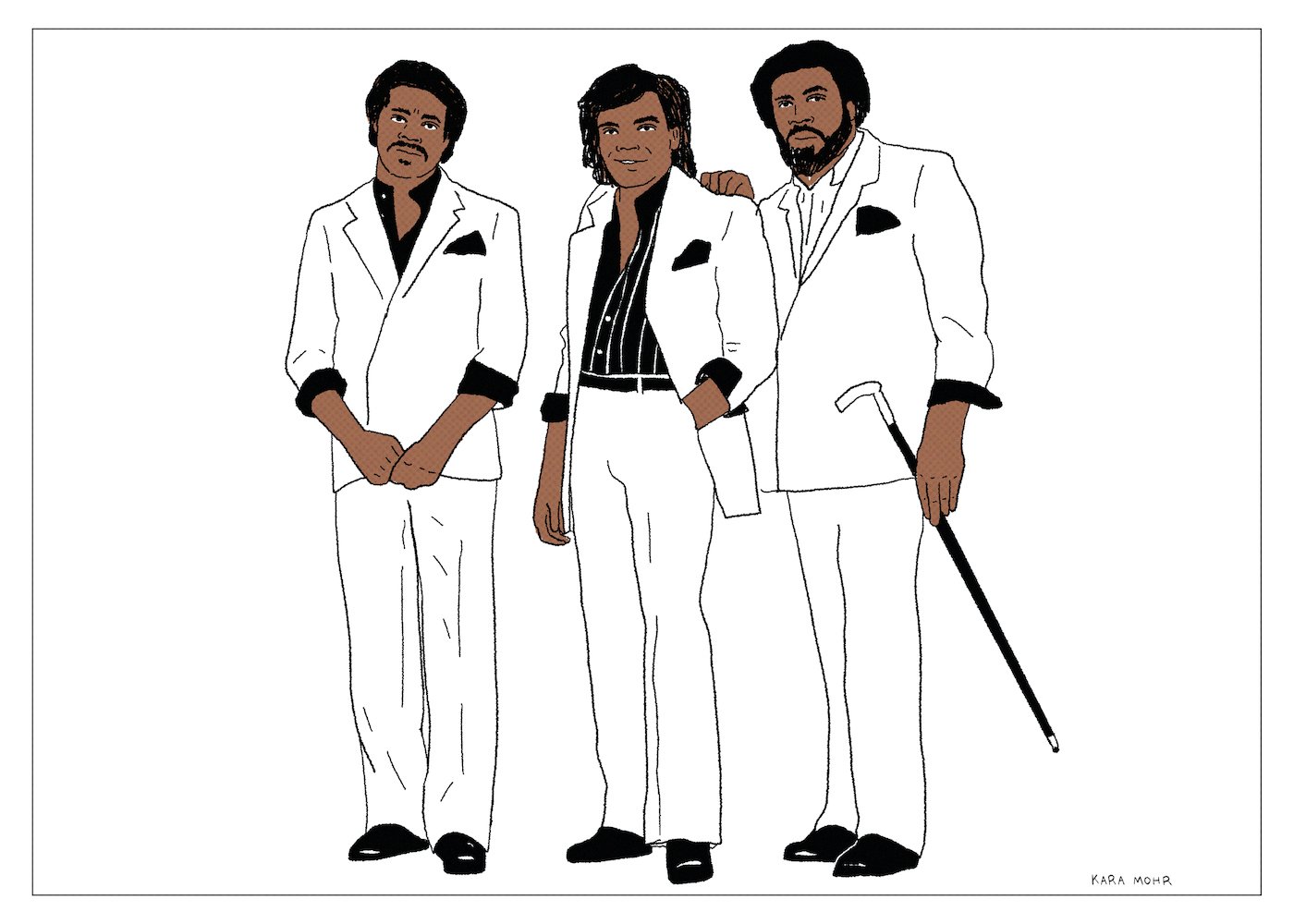
The Isley Brothers “Masterpiece”
In response to Marvin Gaye’s third act and to Luther Vandross’ debut, The Isley Brothers began to move away from Funk and Disco. “Between the Sheets,” from 1983, was a massively successful turn to the bedroom, but also the last album to feature all six Isley Brothers (counting in-law, Chris Jasper). Mounting debt and creative tension ultimately led to the departure of the younger trio, leaving the middle-aged brothers to carry on. Without Ernie’s electric guitar or Chris’ writing and arrangements, however, change was inevitable. Their eventual pivot, entitled “Masterpiece” and released in 1985, featured the three senior Isleys on the cover wearing tuxedos. Ron is seated on a red velvet and gilded chair that looks a lot like a throne. Rudy is standing stage left, holding a regal walking stick. Eldest brother, Kelly, is stage right, mustached and assured, even as he approached sixty and was beginning a battle with cancer. The title and the cover of “Masterpiece” said precisely what they needed to say: classy, but still a little horny.
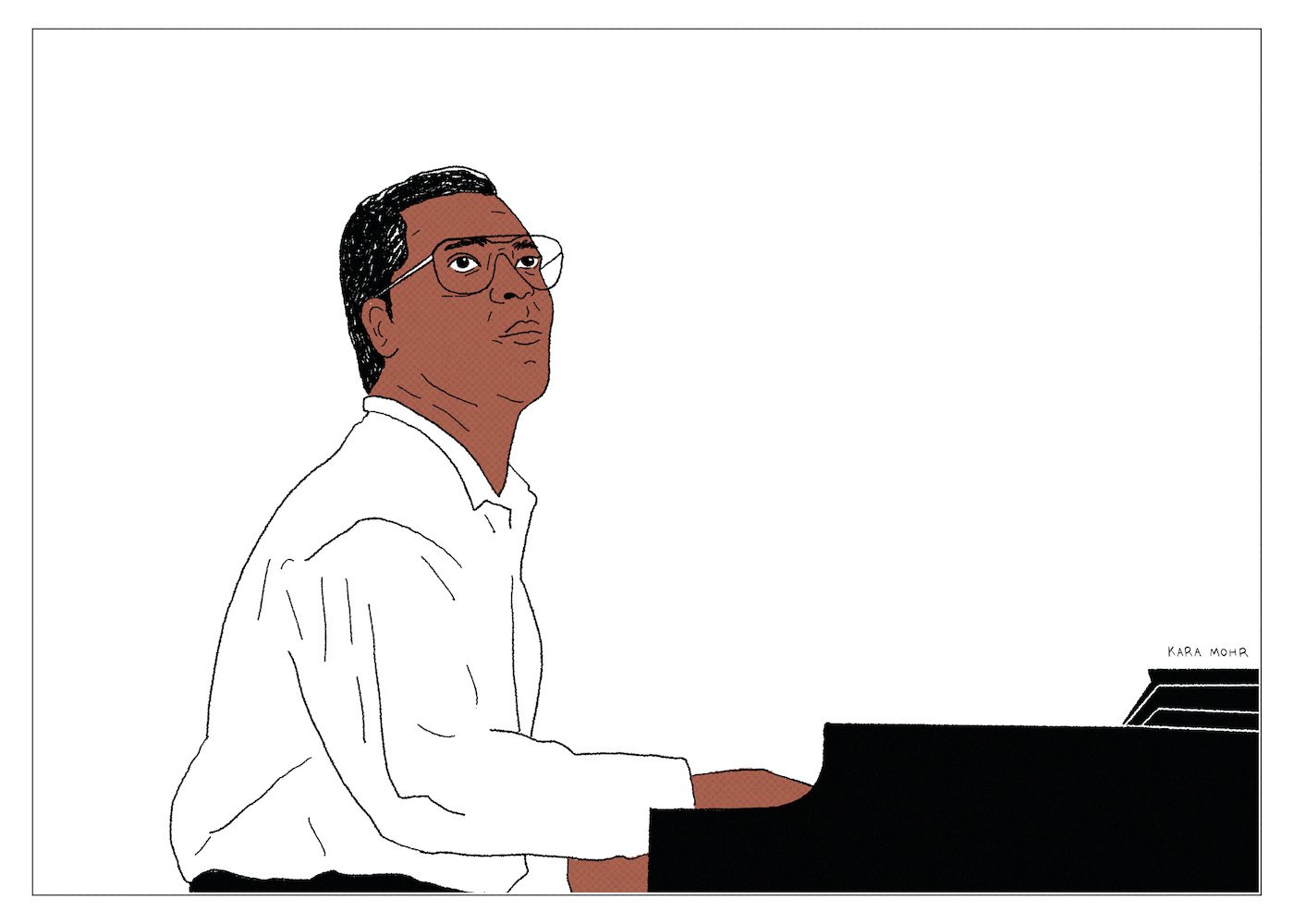
Booker T and the M.G.’s “That’s the Way It Should Be”
We are living in the golden age of music documentaries. In the last year alone, we got “Get Back,” “The Summer of Soul” and “The Velvet Underground.” Before those, there was the one about Ronnie James Dio and the one about Sparks and the Alanis one and the Poly Styrene one and, oh, that Karen Dalton one. It seems like every year, as part of the battle for streaming service supremacy, we get dozens of new additions to the canon. But the one that, for some reason, has yet to be made is the one about the bi-racial house band for Stax Records who made Otis Redding sound like Otis Redding and who were, in their own right, among the most important, but least documented, bands in R&B history. In 1994, seventeen years after their “last” album, they returned to make it final. Even in middle-age, Booker T. and the M.G.’s were flawless but soon forgotten.
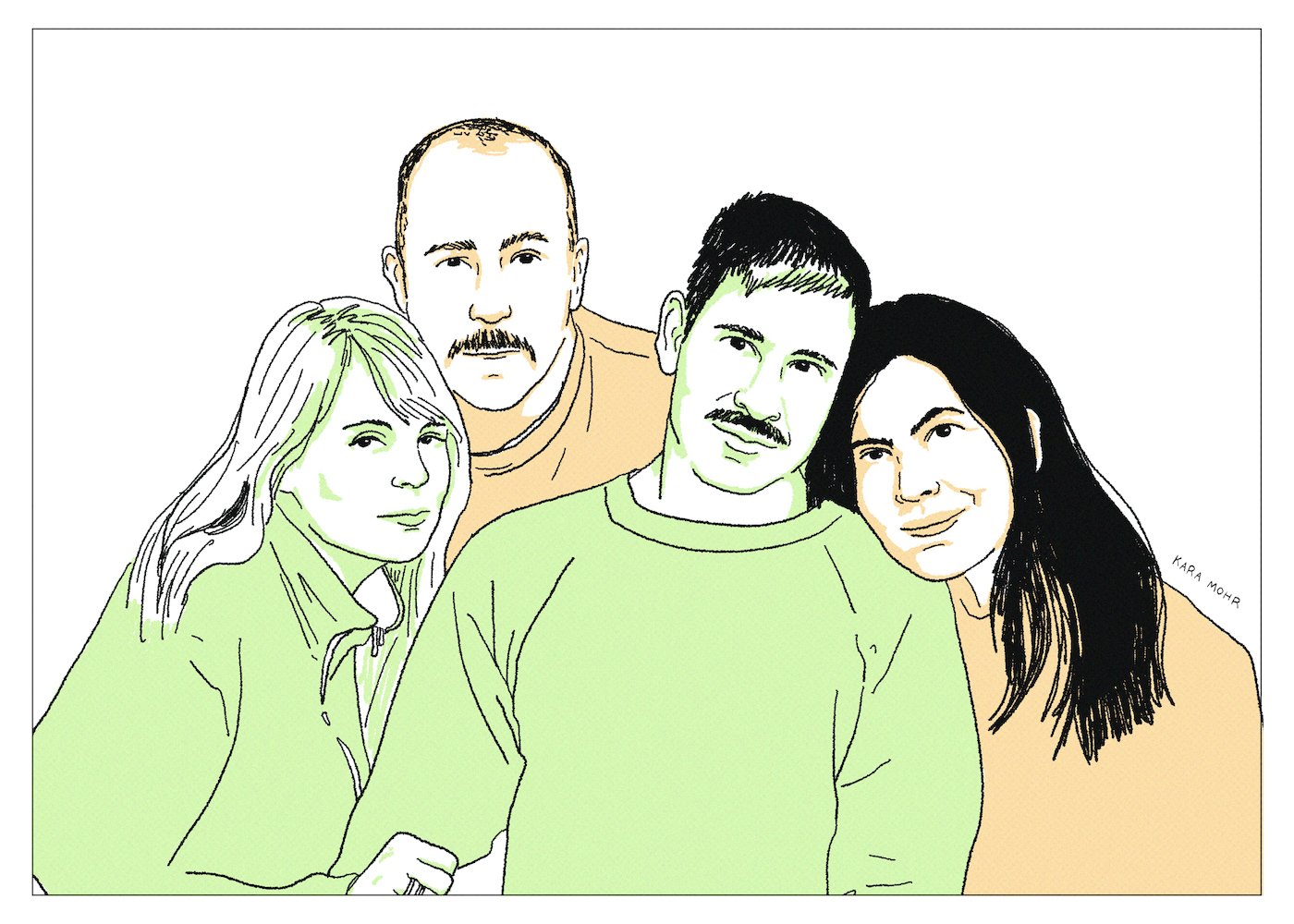
Imperial Teen “Feel the Sound”
By any reasonable standard, they never should have survived. All of those nineties “Buzz Bin” bands are gone. Fastball. Gone. Harvey Danger. Gone. Semisonic. Technically not gone but also gone. Marcy Playground. Either buried deep or gone. But Imperial Teen — the gender equitable, semi-queer group, who that sounded like ABBA if they’d swallowed The Pixies and who had that guy from Faith No More — kept going. Even after their first can’t miss single somehow missed. Even after they moved away and got other jobs and had kids. Even after their record sales dwindled. Even then, they’d get back together and make near perfect records full of bratty swagger, three part harmonies and hooks for miles. They’re the secretly Pop band who refused to get popular but also the Twee Indie act who never cowered. Which makes them a minor miracle.
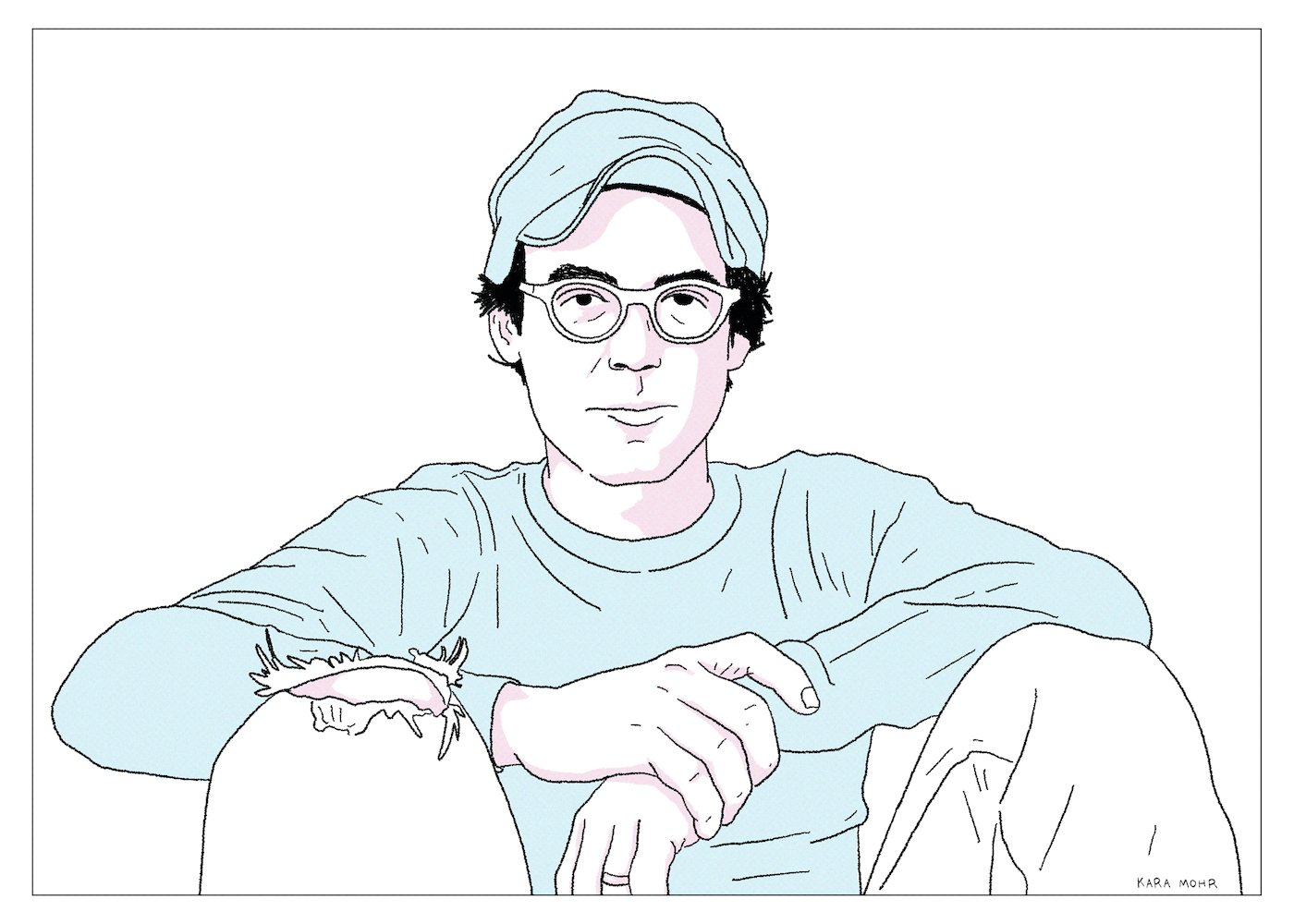
Clap Your Hands Say Yeah “The Tourist”
Twelve years after Pitchfork landed on his head, Alec Ounsworth was still making music as Clap Your Hands Say Yeah. And while he may not have been the first guy to go straight from the basement to the main stage, he was likely the first one to do so without a record deal. Ounsworth was never exactly famous, but he is famously introverted. And that disposition led him from the brink of stardom to a career of relatively minor albums and concerts inside the living rooms of fans. At forty, married and with a daughter, but still proudly without a record label, Ounsworth reconstituted CYHSY to sing us some songs about middle age ennui. “The Tourist” is almost exactly what its title promises and mostly what long time fans were hoping for. Ten oddly melodic, predictably anxious tunes about an introvert who wants to be seen almost as much as he needs to disappear.
